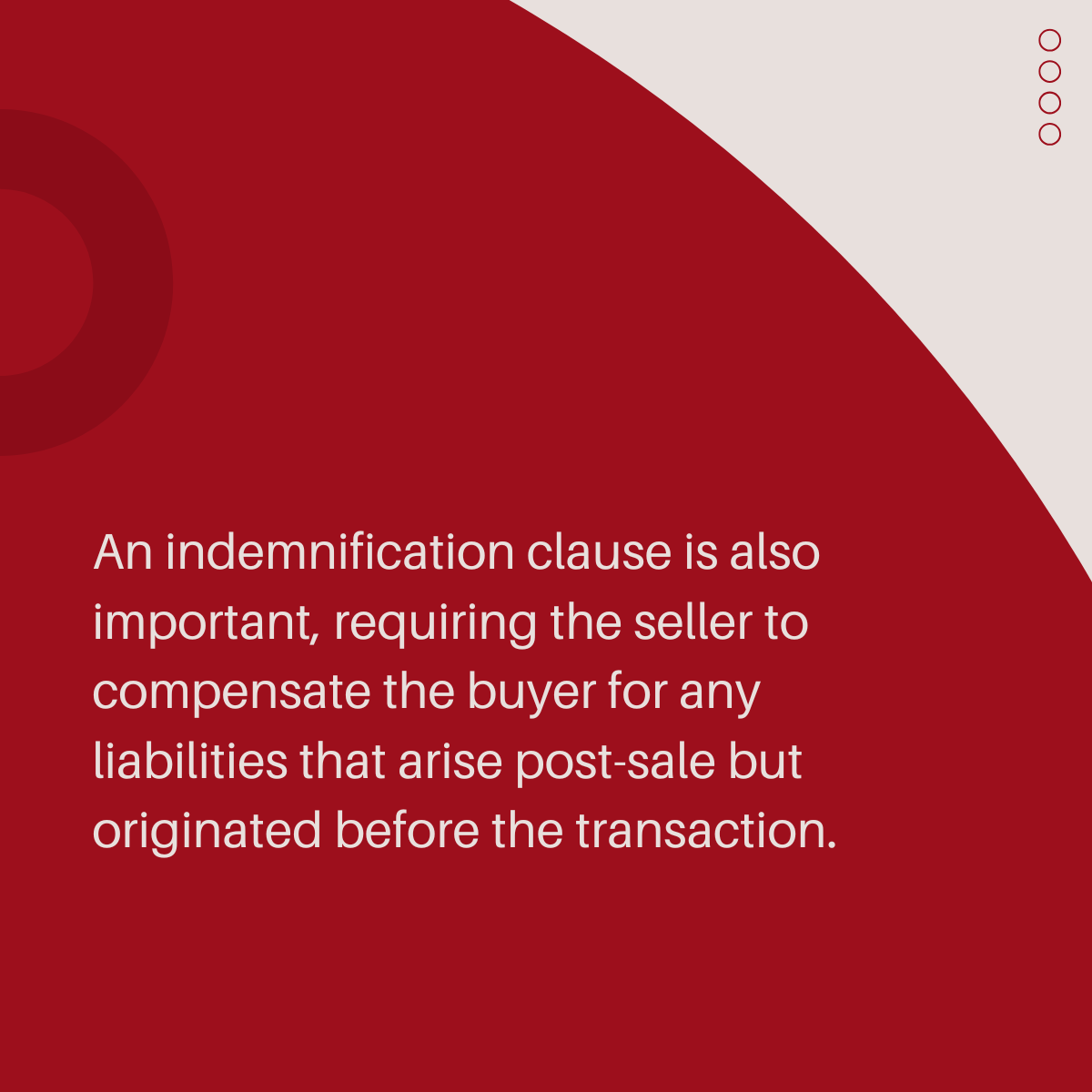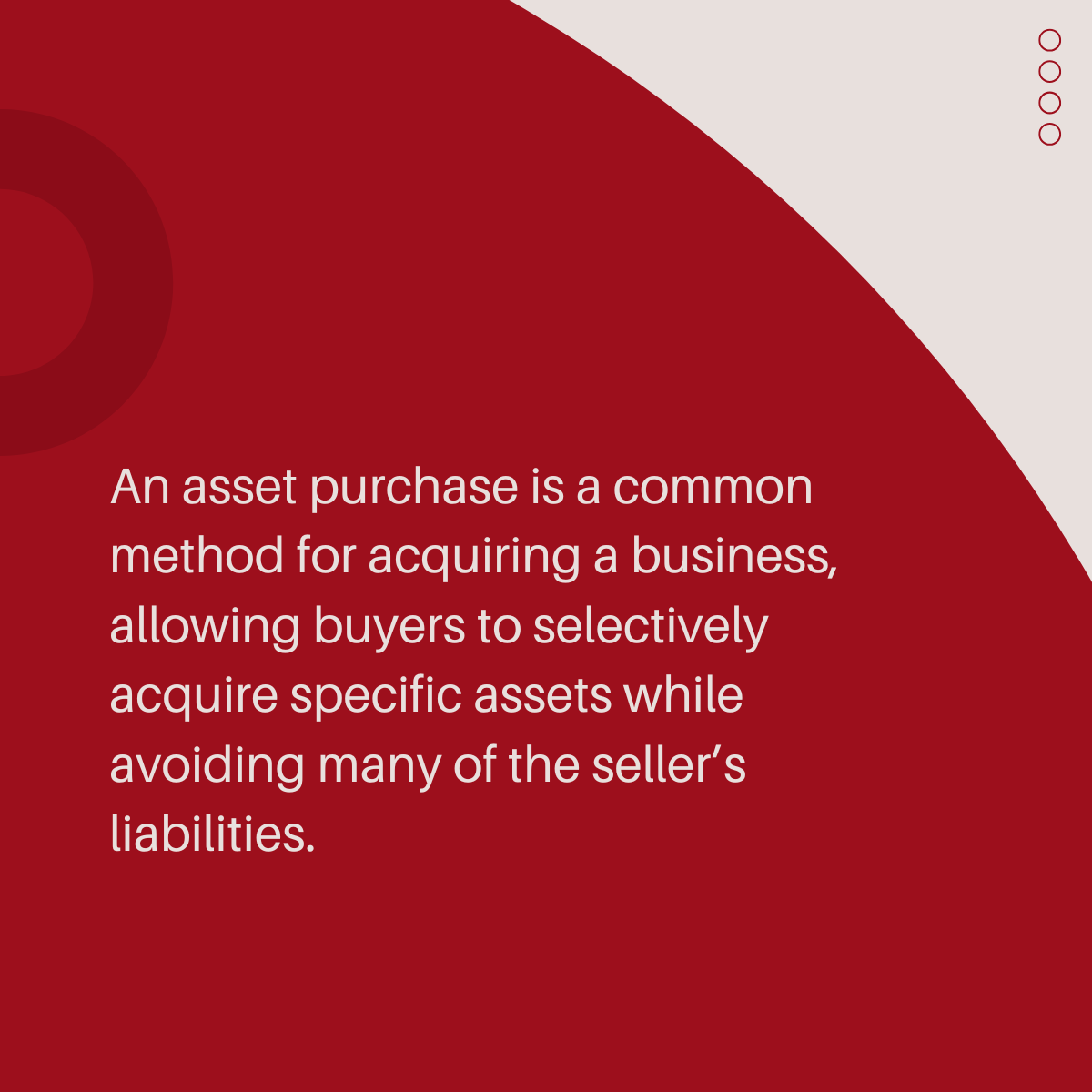
What Happens to Liabilities in an Asset Purchase?
A company decides to purchase another business’s equipment, customer contracts, and intellectual property, believing they are leaving behind any financial burdens tied to the seller. However, months later, they receive notice of a lawsuit for unpaid debts—liabilities they never intended to take on.
This scenario is not uncommon in asset purchases, where buyers assume they are only acquiring selected assets but may still be exposed to certain obligations.
While these transactions are often structured to limit liability, exceptions exist that can create unexpected risks. Understanding how liabilities are handled in an asset purchase is essential for protecting your business, and consulting a business attorney can help ensure a smooth and secure transaction.
What are Asset Purchases?
An asset purchase is a common method for acquiring a business, allowing buyers to selectively acquire specific assets while avoiding many of the seller’s liabilities. This approach differs from a stock purchase, where the buyer assumes ownership of the entire company, including all debts and obligations.
In an asset purchase, buyers typically acquire tangible and intangible assets such as equipment, inventory, intellectual property, customer contracts, and goodwill. However, unless explicitly stated in the agreement, they generally do not take on the seller’s existing liabilities. This structure makes asset purchases particularly attractive for businesses looking to expand without inheriting financial or legal risks tied to the previous owner.
Despite these advantages, buyers must be aware that some liabilities may still transfer under certain circumstances, making due diligence and legal guidance essential before finalizing the transaction.

Liabilities in an Asset Purchase: What Stays and What Goes?
One of the primary reasons businesses opt for an asset purchase over a stock purchase is to limit liability exposure. In most cases, buyers can acquire assets without assuming the seller’s debts or legal obligations. However, there are key exceptions where liabilities may still transfer, even if they are not explicitly included in the purchase agreement.
Liabilities That Typically Do Not Transfer
In a standard asset purchase, the following liabilities usually remain with the seller:
- Outstanding debts and loans – Unless specifically agreed upon, buyers are not responsible for unpaid vendor invoices, bank loans, or lines of credit.
- Litigation and legal claims – Lawsuits filed against the seller before the purchase typically do not transfer to the buyer.
- Tax obligations – Unpaid business taxes, including income, sales, and payroll taxes, generally remain the seller’s responsibility.
Liabilities That May Transfer
Despite the general rule that liabilities stay with the seller, some obligations can follow the assets or the buyer under certain conditions:
- Contractual Assumptions – If a buyer agrees to take over certain contracts (such as leases, supplier agreements, or warranties), they may also assume related liabilities.
- Successor Liability – In some cases, courts may hold buyers responsible for liabilities if the transaction is deemed a continuation of the seller’s business, particularly for unpaid taxes, labor law violations, or environmental issues.
- Employee-Related Liabilities – If the buyer retains existing employees, they may inherit obligations related to wages, benefits, or pension plans.
- Product Liability or Warranty Claims – If the acquired assets include products still under warranty or in active use, the buyer may be liable for future claims.
Understanding these nuances is essential for structuring an asset purchase agreement that protects the buyer from unexpected obligations. Consulting with a business attorney can help with navigating these risks and ensure that the terms of the transaction align with the buyer’s intent.
How to Minimize Liability Risks in an Asset Purchase
While an asset purchase can limit a buyer’s exposure to liabilities, certain risks can still arise if the transaction is not carefully structured. Taking the right precautions can help protect your business from unexpected financial and legal burdens.
Conduct Thorough Due Diligence
Before finalizing an asset purchase, buyers should conduct comprehensive due diligence to uncover any hidden liabilities. This includes reviewing the seller’s financial records for outstanding debts, tax obligations, and pending lawsuits. Existing contracts should be carefully examined to determine if any obligations will automatically transfer with the assets.
Buyers should also investigate regulatory compliance issues, particularly in industries with strict environmental, labor, or licensing requirements. Identifying potential risks early can prevent costly surprises after the transaction is complete.

Draft a Well-Defined Purchase Agreement
A carefully structured purchase agreement should explicitly outline which liabilities are being assumed and which remain with the seller. This document should include clear language excluding any undisclosed debts or obligations from the transaction.
An indemnification clause is also important, requiring the seller to compensate the buyer for any liabilities that arise post-sale but originated before the transaction. Additionally, the agreement should include successor liability protections to ensure that state or federal laws do not impose unforeseen obligations on the buyer.
Negotiate Protections for Future Risks
Even with a strong purchase agreement, buyers may want additional safeguards to protect against future liabilities. One option is holding a portion of the purchase price in an escrow account, which can serve as a financial cushion if unexpected liabilities arise.
Representations and warranties from the seller provide further assurance that all financial records and disclosures are accurate. Liability insurance may also be worth considering, as it can cover potential risks that surface after the transaction has been finalized.
Work with an Experienced Business Attorney
A business attorney can provide critical support throughout the process, from reviewing the terms of the deal to negotiating protections that minimize liability exposure. Legal professionals ensure that all agreements explicitly define which liabilities are assumed and which remain with the seller, reducing the chances of unexpected financial burdens post-transaction. They also help buyers comply with both state and federal laws that could impose successor liability, particularly in areas like taxes, employee obligations, and regulatory compliance.
Law firms with experience in business acquisitions understand the nuances of structuring asset purchases to protect buyers. Their expertise extends to drafting indemnification clauses, advising on escrow arrangements, and identifying red flags that could pose legal or financial risks. By working with a skilled business attorney, buyers can confidently move forward with their acquisition knowing they have taken every precaution to safeguard their investment.

Conclusion
Understanding how liabilities in an asset purchase are handled is crucial for buyers looking to protect their investment. While asset purchases are generally structured to limit liability exposure, certain obligations—such as contractual liabilities, successor liability, and employee-related claims—may still transfer under specific circumstances. Conducting thorough due diligence, drafting a well-defined purchase agreement, and negotiating additional protections can help minimize financial and legal risks.
For businesses navigating an asset purchase, legal guidance is essential. Consulting with a business attorney ensures that all terms are clearly defined, liabilities are properly addressed, and the transaction complies with relevant laws. With the right legal strategy, buyers can confidently acquire assets without inheriting unwanted obligations.
Contact DMAB
If you’re considering an asset purchase, DMAB can provide the expertise and legal protection you need to complete the transaction smoothly. Contact us today to discuss your business acquisition needs.
